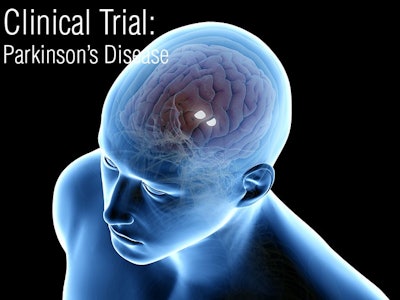
Parkinson’s UK, Europe’s largest charitable institution for Parkinson’s research, announced this week that they will be funding the first-ever clinical trial to determine if cannabidiol (CBD) is a safe and effective treatment for symptoms of psychosis associated with the disease.
The trial, led by King’s College London and set to extend over the course of 4 years, will begin with a 6-week pilot to establish the ideal therapeutic window for dosing, with participants receiving up to 1,000 mg of oral CBD in capsule form per day.
Beginning in 2020, after optimum dosing is determined, researchers will recruit 120 individuals with Parkinson-related psychosis to take part in a double-blind, placebo-controlled study over the course of 12 weeks, according to the initial report from McKnight’s Long Term Care News.
While Parkinson’s disease is primarily classified as a movement disorder, up to 50% of patients develop symptoms of psychosis—namely, hallucinations and/or delusions. Whether intrinsic to the disease or the result of side effects from medications like Levodopa, a commonly prescribed dopamine agonist used to treat movement concerns like rigidity, these neuropsychiatric symptoms often cause greater harm than the motor complications associated with the disease.
Dr. Arthur Roach, director of research at Parkinson’s UK explained in the announcement, “If successful, this trial could result in people with Parkinson’s being able to access a regulated medicine, rather than reverting to expensive unregulated supplements that haven’t been monitored for their effectiveness.”
How Can CBD Improve Symptoms of Psychosis?
Cannabidiol has already demonstrated notable antipsychotic benefit. A 2012 clinical trial that compared the efficacy of CBD and amisulpride, a potent antipsychotic used for treatment of schizophrenia, found that, while both were safe and led to improvement, CBD treatment was “significantly associated with clinical improvement” and “displayed a markedly superior side-effect profile.”(Leweke et al) This study found that CBD application enhanced anandamide signaling (also known as N-arachidonoylethanolamine or AEA), an endocannabinoid transmitter known to be involved in the regulation of pain, mood and cognition.
The results suggest that inhibiting the degradation of anandamide through alteration of FAAH enzymes—so, working on indirect peripheral systems to change the way the body produces and hangs on to internally synthesized cannabinoids—may contribute to the antipsychotic effects of CBD. Another 2016 study from King’s College demonstrated similar results. (McGuire et al)
CBD for Mind and Body
Psychosis isn’t the only symptom of Parkinson’s disease that CBD may help ameliorate. While the upcoming King’s College study will focus on improving cognitive symptoms, CBD has demonstrated indirect modulation of the dopaminergic system as a whole—the deterioration of which is also responsible for motor impairment in the disease.
Parkinson’s is linked to oxidative stress and neurodegeneration. The disease develops when cells in the substantia nigra, the region of the brain that plays a critical role in controlling motor movement and reward functions, begin to die. The loss of these dopamine-producing cells leads to a decrease in dopamine thereby increasing the likelihood of neuropsychiatric symptoms as well as motor abnormalities like tremors, rigidity and postural instability.
In a pre-clinical study investigating the role of CBD on dopamine receptors, investigators saw a biphasic pattern emerge that only occurs with other dopamine agonists - like the anti-Parkinson drug Levodopa or with hallucinogens like lysergic acid diethylamide (LSD)—suggesting that CBD may act as a partial agonist (activator) at dopamine D2 receptors. (Seeman, 2016)
One of the problems with Levodopa treatment for Parkinson’s is that, while the drug can be effective at treating the symptoms of lowered dopamine production in the early stages of the disease, it does not treat the underlying cell death and its efficacy is significantly lowered as the disease progresses.
CBD, in comparison, has demonstrated extensive antioxidant, neuroprotective and even neurogenerative effects in pre-clinical and clinical trials. In addition to preventing the loss of dopaminergic neurons, like the mechanisms associated with the development of Parkinson’s disease, CBD has also shown improvement in the activation of brain cells that act as the primary immune defense in the central nervous system found within the substantia nigra. (Garcia et al., 2011) Not only could CBD potentially alleviate the symptoms associated with Parkinson’s, but it may serve as a preventative or treatment for dopaminergic cell loss, thereby hindering disease progression.
Unfortunately, while pre-clinical studies are promising, human trials with CBD for Parkinson’s related movement complications have failed to demonstrate the same level of efficacy as they have with symptoms of psychosis. This may be in part because, by the time motor complications are evident, approximately 60 percent of dopaminergic neurons have already been lost. (Peres et al, 2018) However, with clinical trials like the upcoming King’s College study on the horizon, which look at early-onset symptoms like psychosis, understanding how CBD could prove efficacious as a preventative against advanced-stage movement disorder progression may be just around the corner.



























